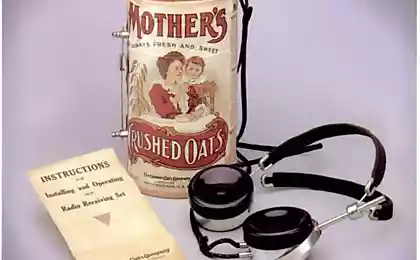538
Headphones harmful: one in four Americans has hearing damage

All cure, heal good doctor... However, hearing loss hardly treated, except in rare cases. So the hearing is protected
Full or partial hearing loss — one of the most common chronic diseases. In particular, in the United States hearing problems in patients is the third most widely spoken place among chronic diseases. Most common issue with diabetes or cancer. Professional activity is also one of the common causes of hearing problems. Even attending concerts with loud music can result in the loss of hearing, not temporary, but permanent.
Doctors say that the louder the sound and the longer a person is exposed to his influence, the greater harm is caused to your hearing. But there is another factor that often leads to hearing problems, and hearing damage is no less strong than those of workers, constantly exposed to loud noises. We are talking about headphones and people listen to loud music.
The conclusion about the dangers of headphones (or rather, loud music that is played with them) made by specialists in the course of data analysis large-scale study of NHANES (National Health and Nutrition Examination Survey). In this study, doctors used two methods of collecting information: interviews and direct verification of hearing people in the age group 20-69 years. In total, the study involved 3583 person. Data were collected over two years, from 2011 to 2012.
During the hearing test, doctors find out the range of sound frequencies that you can hear the volunteers at various levels of sound volume. When hearing patients to hear sounds of a certain frequency, e.g., 3, 4, 5 KHz when the volume of the sound to 15 dB. As it turned out, the problems observed in the fourth (24.4 percent) of volunteers. In men, disorders of organs of hearing were found approximately two times more often than women.
They also found that the higher the age of the person, the more likely the identification of the problems with hearing. But environment young people identified problems in a large number of volunteers belonging to the age group of 20-29 years. Here disorders of hearing was diagnosed in 19.2% of volunteers. Major problems of the youth to become the authors of the study surprise. And most young people who took part in the study, at work or at home, it was not too noisy. As it turned out, these volunteers just love to listen to loud music in headphones of any type (ear plugs, headphones, etc.).
In addition, the hearing did not work as expected in about 20% of volunteers from 2,360, who said that at work they are exposed to loud sound. 2953 among people who rated the state of their hearing as "excellent" or "good" problems were observed in 23.5% of cases. However, here it was that the volunteers no susceptibility to the sound of one or two specific frequencies at a certain volume.

The increase in the number of cases of problems with the organs of hearing with age
In General, the conclusions of the study are quite interesting (remember that the study itself was conducted only among Americans, and did not affect the representatives of other countries):
About 40 million Americans aged 20 to 69 have hearing problems;
Approximately 50% of Americans among the volunteers with disorders of hearing are not exposed to loud noises at work;
1 in 4 Americans who reported excellent or good hearing, identified problems with hearing.
At-risk doctors include people who:
- Exposed to loud noise at home or on vacation;
- Work at enterprises with a high level of noise (85 dB and above over 8 hours or longer);
- Are men;
- Belong to the age group 40 years and older.
- Avoid places with a sound background in high volume;
- Use earplugs, earmuffs on the job with a high level of noise;
- Do not listen too loud TV or music with headphones or without them;
- Checked regularly with a doctor on the subject of health hearing.
Problems, if any, can be detected in the following cases:
- Bad you disassemble a person on the background is not particularly loud noise;
- You are not too well versed speech of the interlocutor, who speaks with a normal tone of voice when you do not see his lips;
- You often don't hear what you are saying you have friends or family members, colleagues.
Source: geektimes.ru/post/285756/























